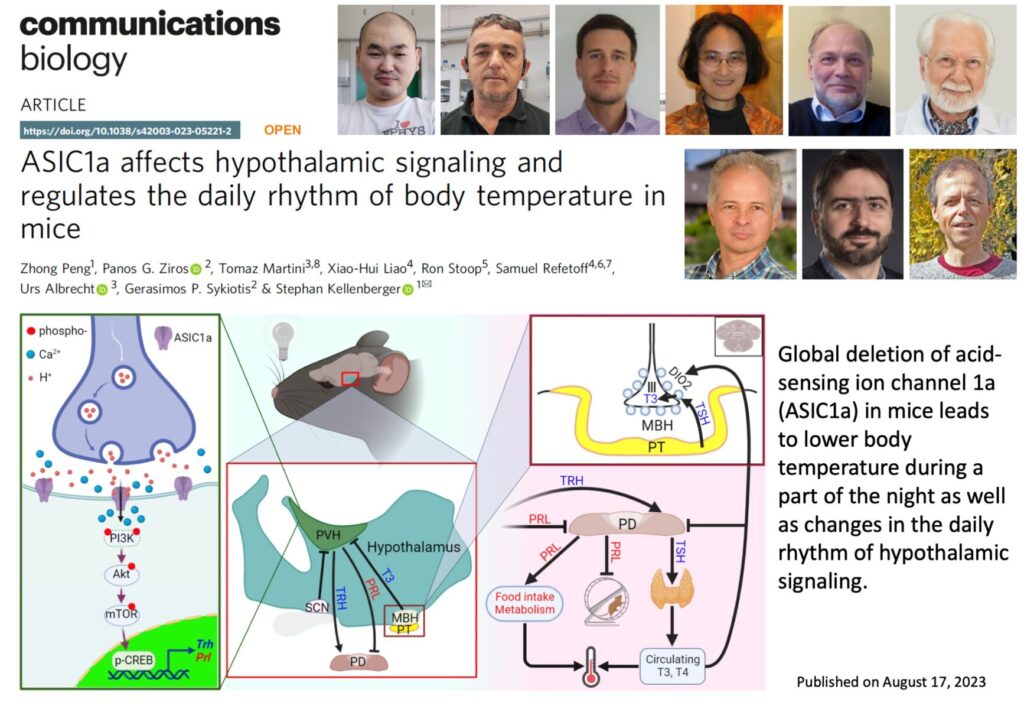
Zhong’s article has been published in “communications biology”. Congratulations, Zhong!
Here is a short summary of Zhong’s findings: The body temperature of mice is higher at night than during the day. We have investigated here whether ASIC1a affects the body temperature of mice. ASICs are neuronal, pH-sensing ion channels that modulate neuronal activity. We show that the deletion of ASIC1a results in lower body temperature compared to wild type mice during a part of the night. In these experiments, the spontaneous activity of the mice was not affected by ASIC1a deletion. If the mice had access to a running wheel, the running activity (a voluntary activity) at night was lower in ASIC1a-/- mice. Next, we investigated the signaling changes in the hypothalamus-pituitary-thyroid axis. Daily rhythms of thyrotropin-releasing hormone mRNA in the hypothalamus and of thyroid-stimulating hormone b mRNA in the pituitary, and of prolactin mRNA in the hypothalamus and pituitary were suppressed in ASIC1a-/- mice. The serum thyroid hormone levels were however not significantly changed by ASIC1a deletion. Thus, the exact mechanism of defective signaling in ASIC1a-/- mice is not understood yet. However, our findings indicate that ASIC1a regulates neuronal activity and signaling in the hypothalamus and pituitary. This likely leads to the observed changes in body temperature by affecting the metabolism or energy expenditure.
